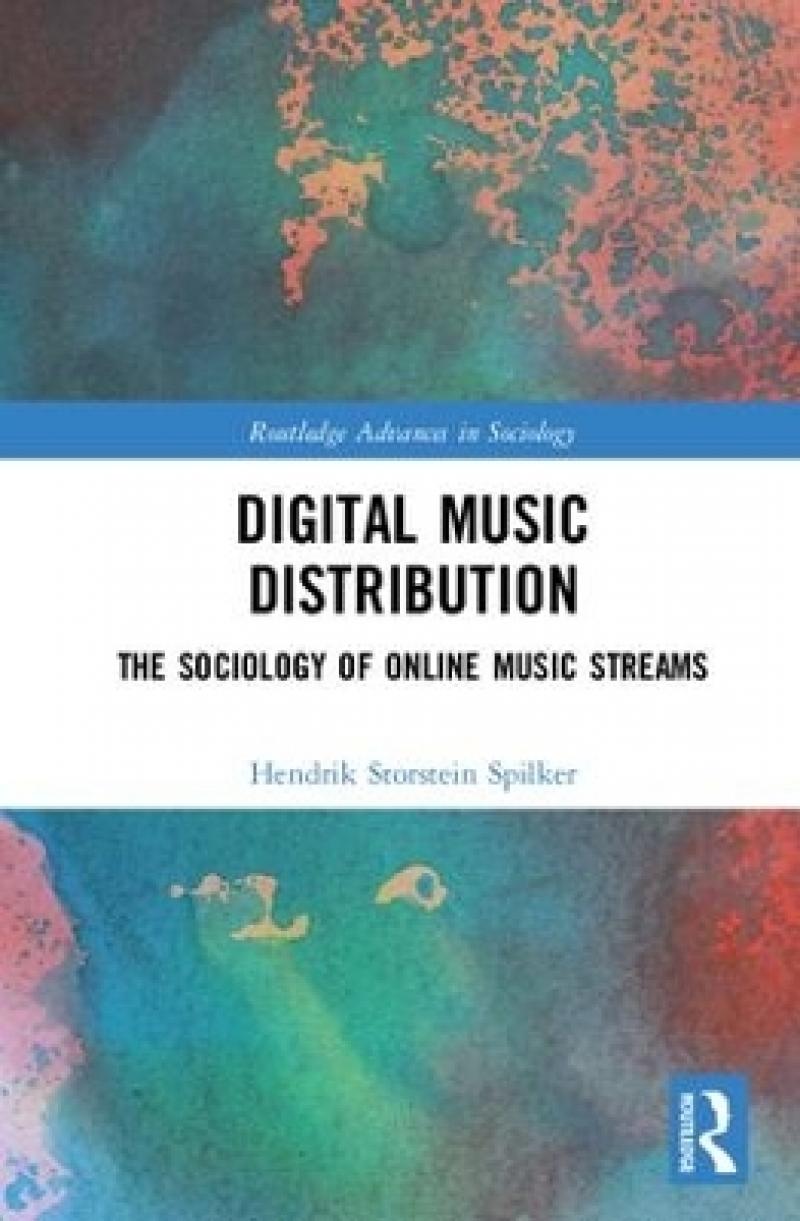The digital music revolution and the rise of piracy cultures has transformed the music world as we knew it. Digital Music Distribution aims to go beyond the polarized and reductive perception of ‘piracy wars’ to offer a broader and richer understanding of the paradoxes inherent in new forms of distribution. Covering both production and consumption perspectives, Spilker analyses the changes and regulatory issues through original case studies, looking at how digital music distribution has both changed and been changed by the cultural practices and politicking of ordinary youth, their parents, music counter cultures, artists and bands, record companies, technology developers, mass media and regulatory authorities.Exploring the fundamental change in distribution, Spilker investigates paradoxes such as:The criminalization of file-sharing leading not to conflicts, but to increased collaboration between youths and their parents;Why the circulation of cultural content, extremely damaging for its producers, has instead been advantageous for the manufacturers of recording equipment;Why more artists are recording in professional sound studios, despite the proliferation of good quality equipment for home recording;Why mass media, hit by many of the same challenges as the music industry, has been so critical of the way it has tackled these challenges.A rare and timely volume looking at the changes induced by the digitalization of music distribution, Digital Music Distribution will appeal to undergraduate students and policy makers interested in fields such as Media Studies, Digital Media, Music Business, Sociology and Cultural Studies.
Les mer
The digital music revolution and the rise of piracy cultures has transformed the music world as we knew it. This book aims to go beyond the polarized and reductive perception of ‘piracy wars’ to offer a richer understanding of the paradoxes inherent in new forms of distribution.
Les mer
DIGITAL MUSIC DISTRIBUTION: * The sociology of online music streams *Hendrik Storstein Spilker *Table of contents *Acknowledgements *CHAPTER 1 *Introduction: Digital Dramas *Music On Demand? *The Folding of Technologies *Into and Beyond «The Piracy Wars» *CHAPTER 2: *Not only about listening: Understanding the new everyday life of music *Perspectives on the Appropriation of Digital Music *Analyzing youth *The omnipresence and omni-interest in music *Top ten music-related practices *You can always get what you want? *CHAPTER 3 *The value of access: Negotiating file-sharing and streaming among youth and with parents *Domesticating controversial technologies *Piracy as morality and rebellion *Digital music technologies as generational boundary markers and asymmetries *Reflections on piracy and legality *Together in crime? *Music in context – negotiating other ICT’s *An access culture? *CHAPTER 4 *In search of the "hacker-punk": Digital music technologies for countercultural measures? *The promises of Punk Style Do-it-yourself *The Quest for the Hacker Punk *What is so Punk about Punk? *The Digitalized Underground *In Search of the Hacker Punk *The Gap between Near and Bin(e)ary Things *The Unruliness of Technology *CHAPTER 5: *Pre-distribution networks and professional networks: Becoming an artist in the age of "piracy cultures" *Of Network Studios and Piracy Cultures *Assembling Work *A Visit to the Network Studio *Being Within or Without the Music Industry? *The Pre-Distribution Network and the Professional Network *Hail to the Album! *CHAPTER 6 *The irony of virtuality: The production of music and news in "the new economy" *The contents of "the new economy" *Network society or Internet society? *A prehistory of digital news and music *Ensure control over the resources *Gain entry to the networks *Gain entry to the networks #part 2 *Ensure control #part 2 *The new economy: a parasitic economy? *The irony of virtuality *CHAPTER 7 *The making of "piracy standards": Assessing the interplay between commercialism and idealism in technology development *The Interplay between Idealism and Commercialism *The Movement of Technologies Across Time and Space *MP3’s Route to Dominance *DivX: The MP3 of Video? *The power of the piracy-entrepreneur nexus *CHAPTER 8 *Media kills music? An Analysis of the Newspaper Coverage of the Piracy Kills Music Campaign *The Fourth Music Estate? *Understanding the Role of the Media in the Piracy Controversies *Identifying frames *Qualitative Framing Analysis *The-support-and-help-the-industry-frame *The-dying-dinosaur-frame *The-head-in-the-sand-frame *The-hopeless-and-desperate-frame *The most-successful-campaign-of-all-time-frame *Quantitative Framing Analysis *- Wasn’t much help to get… *CHAPTER 9: *The regulation of digital music distribution: Assessing the states and futures of the field *Introducing five regulatory models *1. The partly obviation of the ownership model *2. The hope and heath of the access model *3. The professionalization of the alternative revenue model *4. The remix model as ideology and practice *5. The radical and the limited compensation model *The manifold roles of music, musicians and music-users *CHAPTER 10 *The Music Welfare State *Folding Revisited *Programs, Antiprograms, Circumventions, Ramifications… *The Old and the New Divide *The Triumph of Piracy *The Technological Empire *A State of Balance? *References *
Les mer
Produktdetaljer
ISBN
9781138673908
Publisert
2017-09-05
Utgiver
Vendor
Routledge
Vekt
453 gr
Høyde
234 mm
Bredde
156 mm
Aldersnivå
U, 05
Språk
Product language
Engelsk
Format
Product format
Innbundet
Antall sider
218
Forfatter
Biographical note
Hendrik Storstein Spilker is associate professor in media sociology at the Institute for Sociology and Political Science at the Norwegian University of Science and Technology in Trondheim
